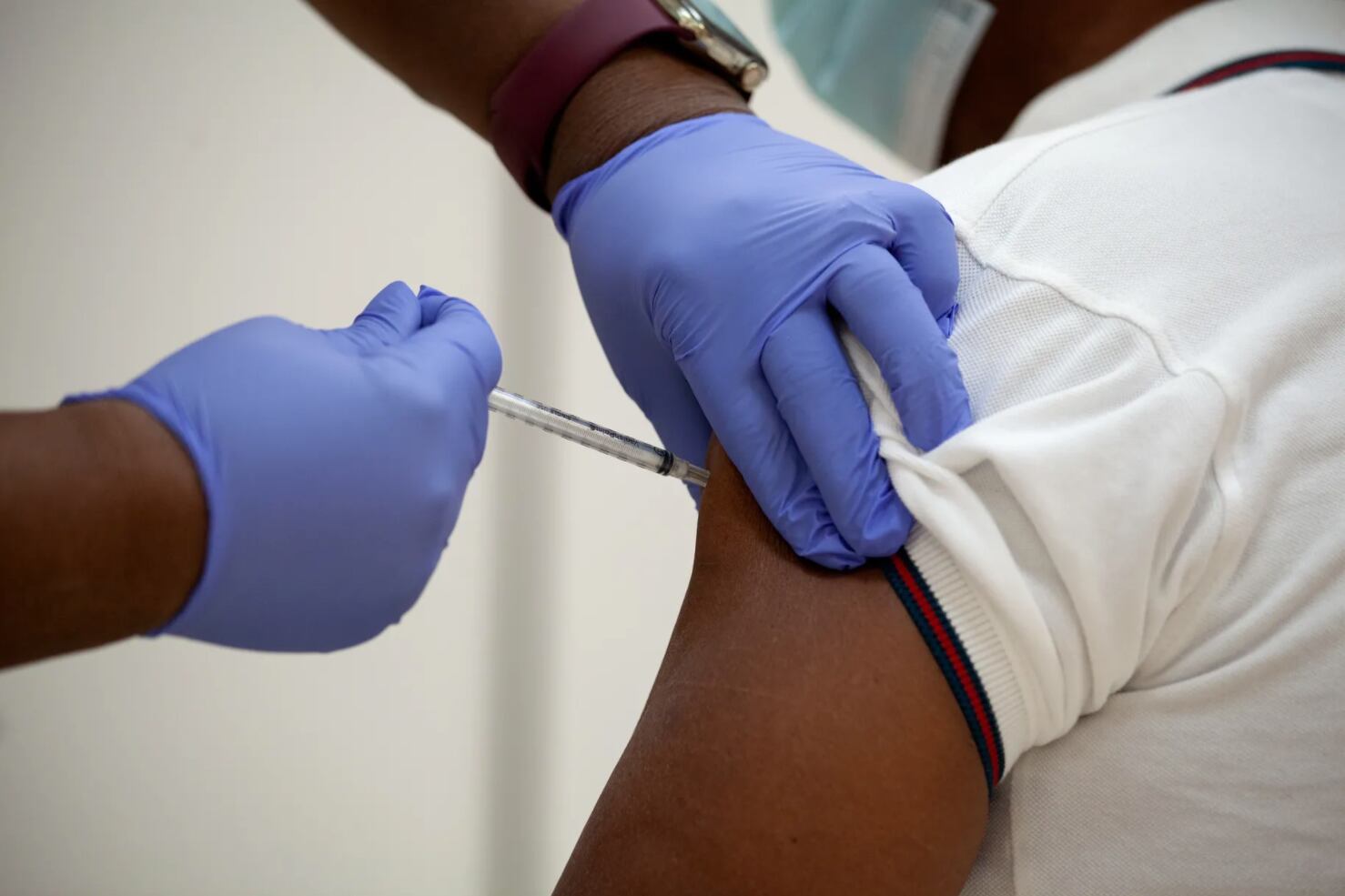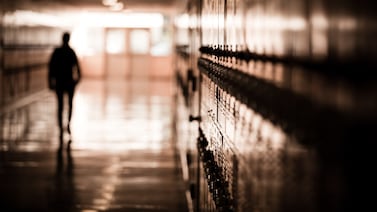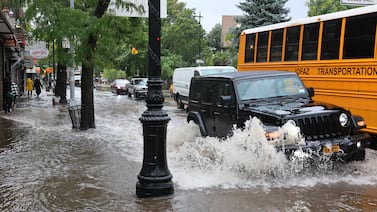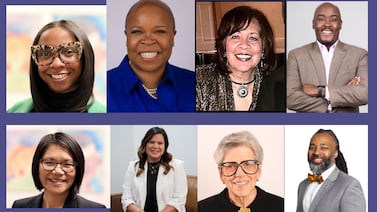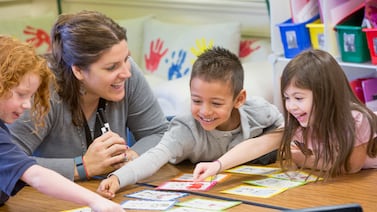New York City parents and caregivers are likely days away from making appointments to get COVID vaccines for their children ages 5 to 11 — but city officials have yet to reveal what role, if any, schools will play in vaccine distribution.
While the education department hosted clinics in nearly 800 schools this fall for children aged 12 and older, it’s unclear if there are plans to add sites at elementary schools or expand eligibility at current school-based sites to include kids 5 to 11. Education officials said in a statement that they are “working closely with the Department of Health in anticipation of the expansion of vaccine eligibility to younger students.”
Mayor Bill de Blasio was vague when asked about the potential of administering shots at elementary schools in a recent press conference.
“We’re going to rely on all the sites and all the centers we’ve had so far that have worked so well as we begin the effort,” de Blasio said this week.
On Thursday, Health Commissioner Dave Chokshi highlighted that the city is working with pediatricians and pharmacies on logistics for the 231,000 doses of pediatric vaccine slated to arrive in the city next week. He mentioned the education department only as a partner in a public information campaign around vaccination.
Both federal and state officials have said that schools will play a role in COVID-19 vaccine distribution for younger kids. The White House says in its planning document that the administration will “work with states and local partners to make vaccination sites available at schools and other trusted community-based sites,” in addition to pharmacies, pediatricians’ offices, and children’s hospitals. New York Governor Kathy Hochul said in her Oct. 20 COVID-19 update that her administration is “working closely with schools so they can help get shots in arms.”
“NYC is working hard to ensure that younger children can be vaccinated as soon as they become eligible,” said Victoria Merlino, a spokesperson for the city’s health department. “This includes significant planning and preparation with NYC vaccination sites and pediatric-care providers who already know these children, as well as exploring other opportunities for youth-specific vaccination.”
Pediatric vaccine timeline
An advisory panel to the Food and Drug Administration voted on Oct. 26 to recommend authorization of Pfizer’s COVID-19 vaccine for use in children ages 5-11. The 10 microgram dose is a third of the amount given to older children and adults. It’s administered in a two-shot series, three weeks apart.
The next step is for the FDA to formally grant the emergency use authorization. After that, the data will be reviewed Nov. 2-3 by the independent Advisory Committee on Immunization Practices, organized by the Centers for Disease Control and Prevention. That committee will recommend which children should receive the vaccine, a decision that will need to be approved by the CDC’s director. Only then will doses begin shipping.
Though city health officials said there may be a lag between federal approval and local appointment scheduling, the mayor was encouraging about the turnaround time between approval and appointments.
“Within 24 hours of the CDC guidance, vaccination for the youngest New Yorkers, 5 to 11, will be available at the city-run sites,” de Blasio said Thursday. He said vaccinations will be available at “pediatricians’ offices, pharmacies, and other types of vaccination sites” within 48 hours of the announcement.
Parents may experience a chaotic initial rollout and some difficulty finding an appointment in “the first few weeks following approval,” said Dr. Kelly Fradin, a pediatrician in New York City.
She said that she had already pre-ordered doses to offer to children in her practice through the city’s health department. Fradin said she expects that “many pediatricians will step up to be distribution sites in addition to pharmacies, hospitals and school vaccine clinics.”
Not everyone believes school clinics will be necessary.
“We are mostly going to see this roll out in pediatric offices,” said Dr. Jesse Hackell, a pediatrician at Pomona Pediatrics in Rockland County, New York. “I’m not expecting to see too much commercial activity on this.”
Hackell said that pediatricians, who have preexisting relationships with their young patients and long experience administering childhood vaccines, are ideally placed to lead the charge on COVID-19 vaccination for young people.
Dr. Juan Tapia, a pediatrician with SOMOS Community Care Network, who practices in Washington Heights, agreed, and said that discussions between pediatricians and parents are crucial in the uptake of this vaccine.
“It’s an ongoing dialogue with parents – talking to them, explaining with hard data, that the corona vaccine is not only necessary to protect the community but also to protect the family,” said Tapia. “It is a vaccine that has been proven with the data that we have.”
Both pediatricians spoke of working the new COVID-19 vaccine into standard well-child visits, as appropriate.
Tapia said he also sees a role for schools, churches, and community centers in vaccine administration in order to vaccinate as many young people as quickly as possible.
“The main point,” he said, “is vaccinating as many people as possible in the shortest amount of time possible.”
No more extreme refrigeration
This round of pediatric vaccination will benefit from logistical and product improvements that will make inventory management easier. Earlier in the pandemic, extreme refrigeration requirements and large order minimums prevented small pharmacies and doctors’ offices from stocking the COVID vaccines. Pfizer has tweaked the formulation of the vaccines for children 5-11 so they can be stored in vaccine refrigerators for up to 10 weeks.
The 10-dose vials will be shipped in packages of 10, along with the necessary ancillary supplies for dispensing the doses. The health department has a 300-dose minimum for a practice’s first order, and subsequent orders can be 100 doses.
“In 10 weeks, even a small practice ought to be able to use 100 doses,” Hackell said.
Childrens’ hospitals will also likely play a role in vaccine distribution, especially in areas with lower projected demand. Some pediatrician’s offices won’t be able to use a full vial in the required six-hour time frame after puncturing it, said Tina Schmitt, the manager of employee health and wellness at Dayton Children’s Hospital in Ohio. Dayton Children’s is planning COVID-19 vaccine clinics on the hospital campus after approval has been granted to centralize efficient distribution of the vaccine. School clinics in their service area, she said, have often been poorly attended, making them not worth the extra resources to run.
Vaccination for New York City’s elementary students will have an impact on whether they’re required to quarantine if exposed to a positive case at school.
Currently, fully-vaccinated students (meaning at least two weeks have passed since the second dose) are not required to quarantine after being identified as a close contact unless they develop symptoms. Unvaccinated students must quarantine for 10 days, though they may return on the eighth day with proof of a lab-confirmed negative test administered on Day 5 or later. There have been at least 20,000 students quarantined this school year so far, according to city data.
Nationwide COVID-19 cases spiked last winter, before widespread availability of vaccines, and many schools went remote for large parts of the 2020 holiday period. This year, the picture is quite different, and cases are currently on a downward trend. For families who are hoping to have their newly-eligible children fully vaccinated by Christmas, time is of the essence. To meet the mark, they’ll need to receive a first dose by Nov. 17.


